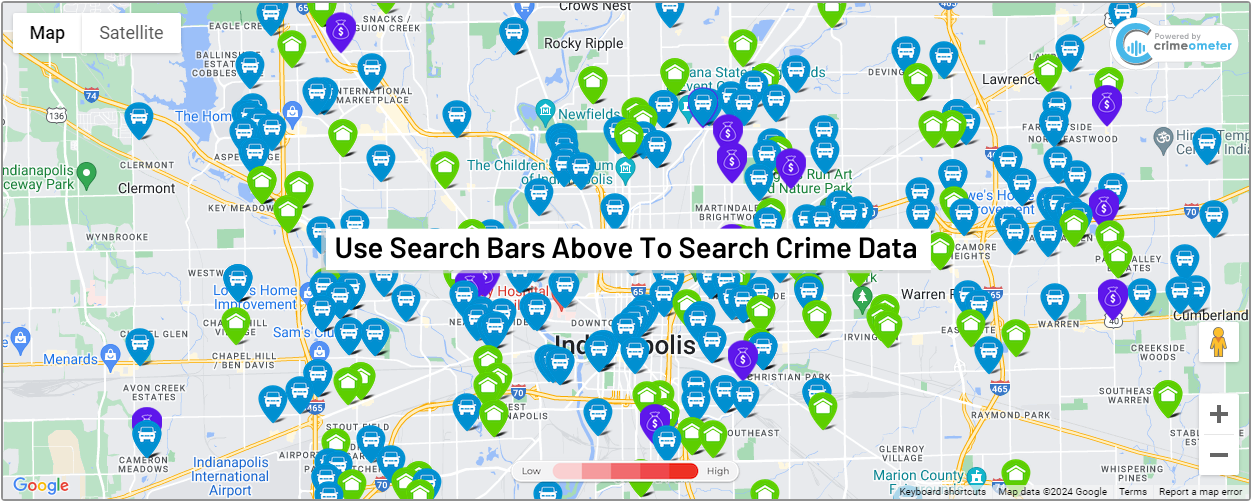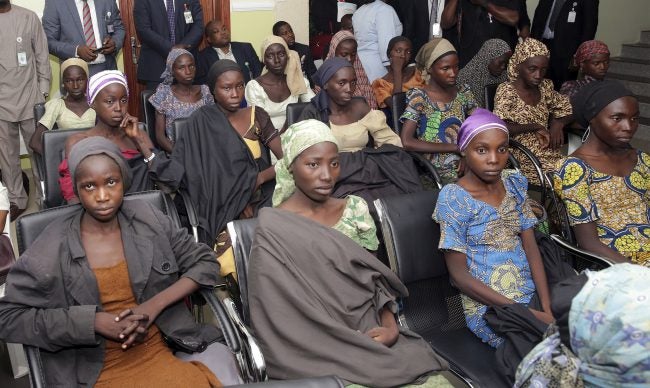Nigeria says 82 Chibok girls free in Boko Haram exchange
MAIDUGURI, Nigeria (AP) – Eighty-two Chibok schoolgirls seized three years ago by Boko Haram have been freed in exchange for detained suspects with the extremist group, Nigeria’s government announced early Sunday, in the largest release negotiated yet in the battle to save nearly 300 girls whose mass abduction exposed the mounting threat posed by the Islamic State-linked fighters.
The statement from the office of President Muhammadu Buhari was the first confirmation that his government had made a swap for the girls. After an initial release of 21 Chibok girls in October, the government denied making an exchange or paying ransom.
The April 2014 abduction by Boko Haram brought the extremist group’s rampage in northern Nigeria to world attention and, for families of the schoolgirls, began years marked with heartbreak.
Some relatives did not live long enough to see their daughters released. Many of the captive girls, most of them Christians, were forced to marry their captors and give birth to children in remote forest hideouts without ever knowing if they would see their parents again. It is feared that other girls were strapped with explosives and sent on missions as suicide bombers.
As word of the latest release emerged, long-suffering family members said they were eagerly awaiting a list of names and “our hopes and expectations are high.”
Before Saturday’s release, 195 of the girls had remained captive. Now 113 of the girls remain unaccounted for.
The freed girls were expected to meet with Buhari on Sunday in the capital, Abuja.
A Nigerian military official with direct knowledge of the rescue operation said the freed girls were found near the town of Banki in Borno state near Cameroon.
“The location of the girls kept changing since yesterday when the operation to rescue them commenced,” said the official, who spoke on condition of anonymity because he was not authorized to make the announcement.
Boko Haram remains active in that area. On Friday, the United States and Britain issued warnings that the extremist group was actively planning to kidnap foreigners in an area of Borno state “along the Kumshe-Banki axis.”
The 276 schoolgirls kidnapped from Chibok in 2014 are among thousands of people abducted by Boko Haram over the years.
The mass abduction shocked the world, sparking a global #Bringbackourgirls campaign supported by former U.S. first lady Michelle Obama and other celebrities. It has put tremendous pressure on Nigeria’s government to counter the extremist group, which has roamed large parts of the north and into neighboring countries.
“This is a very, very exciting news for us that we have over 80 of our girls coming back again,” Bukky Shonibare with the #BringBackOurGirls campaign told Sky TV. “Their life in captivity has been one that depicts suffering, it depicts the fact that they have been starved, abused, and as we have seen before some of those girls have come back with children, and some of them have also come back with news of how they have been sexually abused.”
The latest negotiations were again mediated by the Swiss government and the International Committee of the Red Cross, Nigeria’s government said.
At the initial release of girls in October, the government said the release of another 83 would be coming soon. But at the three-year anniversary of the kidnapping in April, the government said negotiations had “gone quite far” but faced challenges.
Buhari late last year announced Boko Haram had been “crushed,” but the group continues to carry out attacks in northern Nigeria and neighboring countries. Its insurgency has killed more than 20,000 people and driven 2.6 million from their homes, with millions facing starvation.
Never miss another Facebook post from WISH-TV


